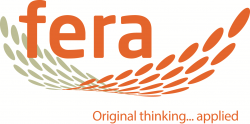Foundation Degree Accreditation Assessment Criteria
To achieve accreditation for a programme, HEIs will need to provide robust evidence in support of their application, which will be judged by peer review against the standard metrics listed below. The evidence should show how the intended learning outcomes are being achieved through appropriate assessment strategies. Further information can be found in the Accreditation Handbook, which should be used as the main source of reference.
General Criteria
Evidence is required to show how the foundation degree programmes meet the following:
- Development of work-based learning - there should be a substantial focus on work-based learning relevant to the programme
- Demonstration of the acquisition of professional skills - students should learn in a hands-on practical environment in a progressive process
- Development of transferable skills - this should cover skills including word processing, task management, problem solving, and science communication
- Foundation in mathematics, statistics, chemistry and physics - this should be in sufficient depth and breadth for students to appreciate and apply these subjects within a biological context
- Specific skills and knowledge - this should include underpinning general knowledge of the basic fundamentals of biology appropriate to the degree title
- Development of creativity and innovation - students are given the opportunity to apply their creative and innovative skills and think beyond their own discipline
Subject Specific Criteria
Subject specific guidance and learning outcomes have been developed by appropriate Learned Societies and written specifically for accreditation by the RSB for the following subjects:
- Biochemistry
- Ecology
- Microbiology
- Neuroscience
- Pharmacology
- Physiology
These criteria can be found in the Accreditation Handbook which should be used as the main source of reference.
Supporters of Accreditation




